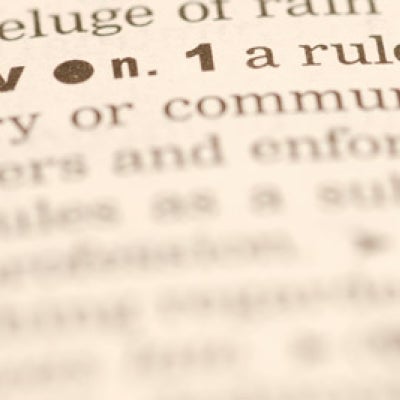Refine results
-
14 December 2012Book page
2011 Immigration detention at Curtin
Observations from visit to Curtin Immigration Detention Centre and key concerns across the detention network Download in PDF [1.28 MB] Download in Word [26.40 MB] DIAC response to the report Photos Contents PART A: Introductory sections 1 Introduction 2 Summary 3 Overview: Curtin Immigration Detention Centre PART B: Key concerns arising from the Commission’s visit to Curtin Immigration… -
Legal14 December 2012Webpage
Inquiry into Australia’s agreement with Malaysia in relation to asylum seekers
Inquiry into Australia’s agreement with Malaysia in relation to asylum seekers Australian Human Rights Commission Submission to the Senate Standing Committees on Legal and Constitutional Affairs 14 September 2011 Download in PDF [497 KB] Download in Word [366 KB] Table of Contents 1 Introduction 2 Background 3 Summary 4 Recommendations 5 Detention of people awaiting transfer 6 Transfer to… -
28 October 2013Book page
2 Onshore detention and processing
2.1 Mandatory immigration detention It is mandatory under the Migration Act for every non-citizen who is in Australia without a valid visa to be detained, regardless of his or her individual circumstances. [24] Once detained, unlawful non-citizens must remain in detention until they are either granted a visa or removed from Australia. [25] The majority of unlawful non-citizens are detained… -
Legal14 December 2012Webpage
Australian Human Rights Commission Submission to the Joint Select Committee on Australia’s Immigration Detention Network (2011)
Joint Select Committee on Australia’s Immigration Detention Network Australian Human Rights Commission Submission to the Joint Select Committee on Australia’s Immigration Detention Network August 2011 Download in PDF [2 MB] Download in Word [3.31 MB] Table of Contents 1 Introduction 2 Summary 3 Recommendations PART 1: Immigration detention law, policy and practice 4 Mandatory detention 5… -
Business and Human Rights30 November 2022Speech
Executive discretion in a time of COVID-19
Promoting, protecting and fulfilling human rights in the contemporary public health context 11th Austin Asche Oration in Law and Governance Australian Academy of Law and Charles Darwin University Emeritus Professor Rosalind Croucher AM FRSA FACLM(Hon) FAAL TEP * Abstract Responses to the COVID-19 pandemic have required very quick action by governments. But those responses have also involved … -
25 September 2013Book page
6 Some regulatory challenges
The challenge of finding the appropriate balance between rights is not one which is specific to the Internet.It is difficult to know if Australian laws that limit freedom of expression in the interests of other rights, or on other permissible grounds, have ‘drawn the line’ appropriately without a comprehensive review of such laws. In New Zealand, a legislative review undertaken by the New… -
Legal14 December 2012Webpage
Information concerning Australia and the Convention on the Rights of the Child
Information concerning Australia and the Convention on the Rights of the Child Australian Human Rights Commission Submission to the Committee on the Rights of the Child August 2011 Download in PDF [416KB] Download in Word [498KB] Table of Contents 1 Introduction 2 National developments 3 General measures of implementation 3.1 Legal protection of children’s rights 3.2 UN Declaration on the… -
Race Discrimination11 December 2013Project

At a glance: Racial vilification under sections 18C and 18D of the Racial Discrimination Act 1975 (Cth)
Understand racial vilification under sections 18C and 18D of the Racial Discrimination Act, exploring key cases and legal interpretations. -
Legal10 October 2017Submission
Information concerning Australia’s compliance with the International Covenant on Civil and Political Rights (2017)
Information concerning Australia’s compliance with the International Covenant on Civil and Political Rights 18 September 2017 Australian Human Rights Commission Submission to the UN Human Rights Committee Table of Contents 1 Introduction 2 Priority areas 3 General information 3.1 Scrutiny of human rights and the Parliamentary Joint Committee on Human Rights (ICCPR article 2; LOI 2 & 4) 3… -
15 July 2014Book page
Chapter 1: How far have we come? Looking back on 20 years of the Social Justice Commissioner role
1.1 Introduction This year marks 20 years since the establishment of the Aboriginal and Torres Strait Islander Social Justice Commissioner (Social Justice Commissioner) role under the Australian Human Rights Commission Act 1986 (Cth). When I first started in this position I was asked if any of the previous Commissioners had left any words or notes of advice. I answered them ‘no, but they all… -
3 January 2014Book page
2 Background and framework for promotion and protection of human rights
2.1 Scope of international obligations During Australia’s review, the Government made a commitment to improving Australia’s monitoring of its international human rights obligations. Australia is a party to seven of the core human rights treaties and maintains a number of reservations under these. The Australian Government made a commitment to conduct a comprehensive review of such…
Pagination
- Current page 1
- 2
- 3
- 4
- 5
- Next page Next ›
- Last page Last »
